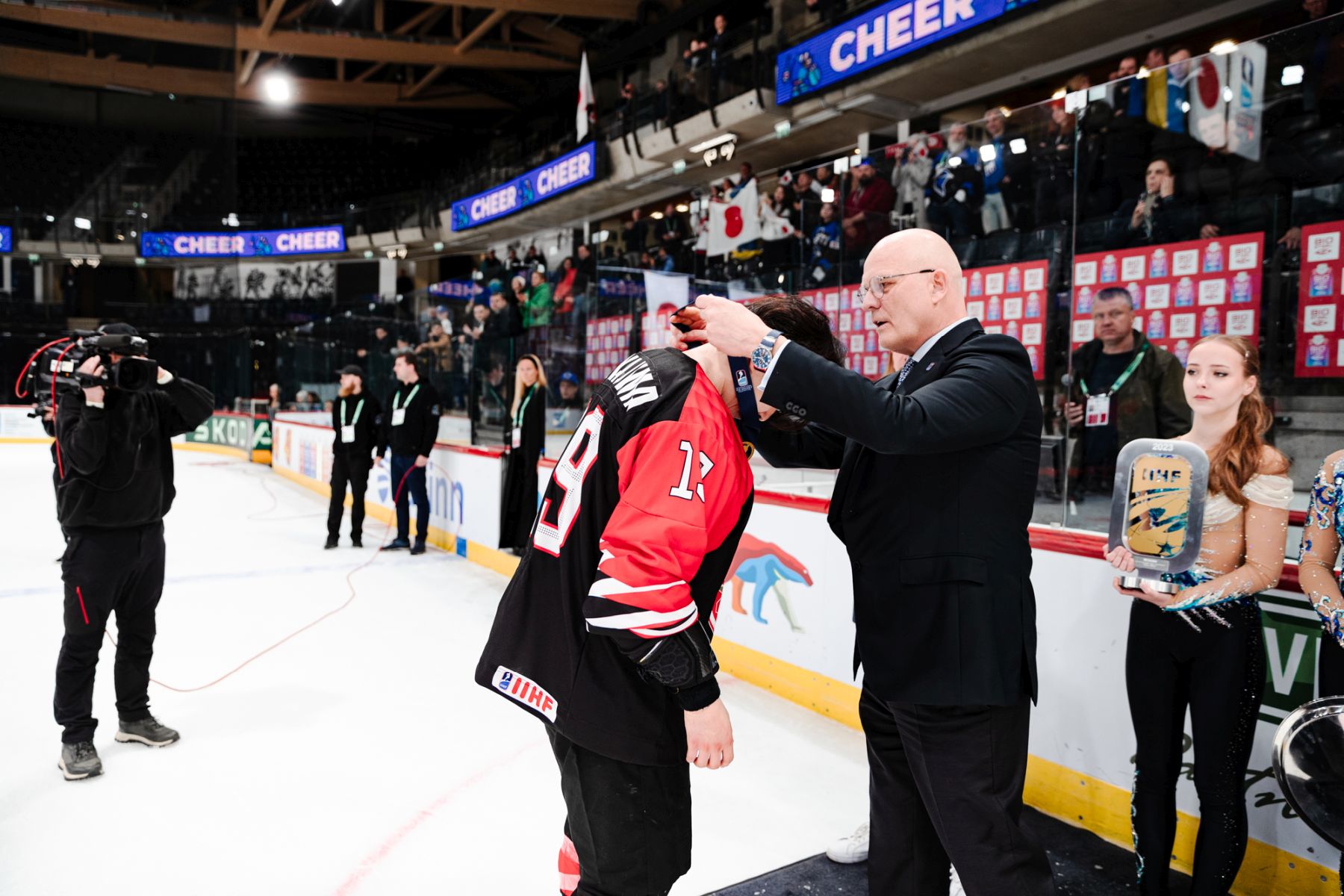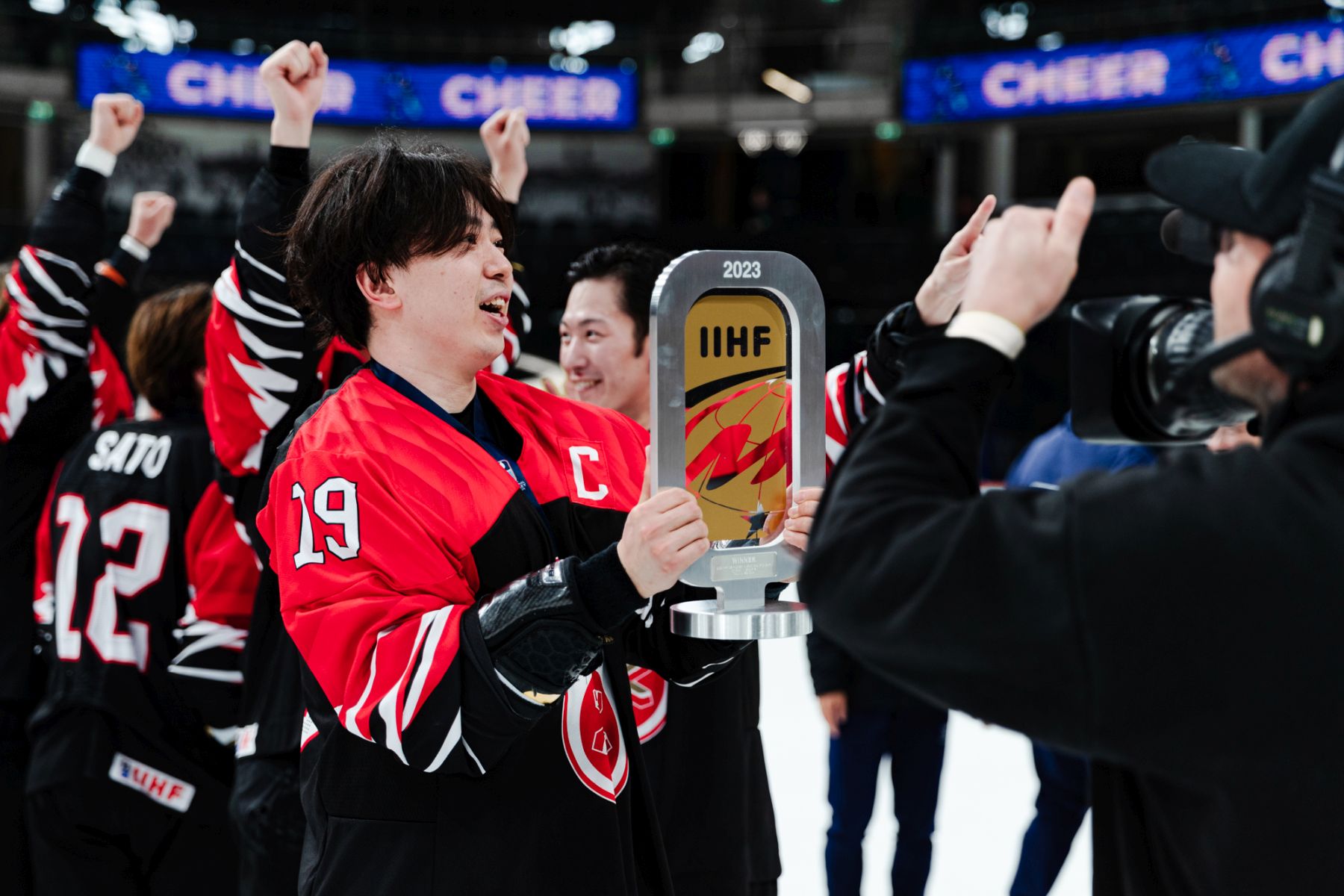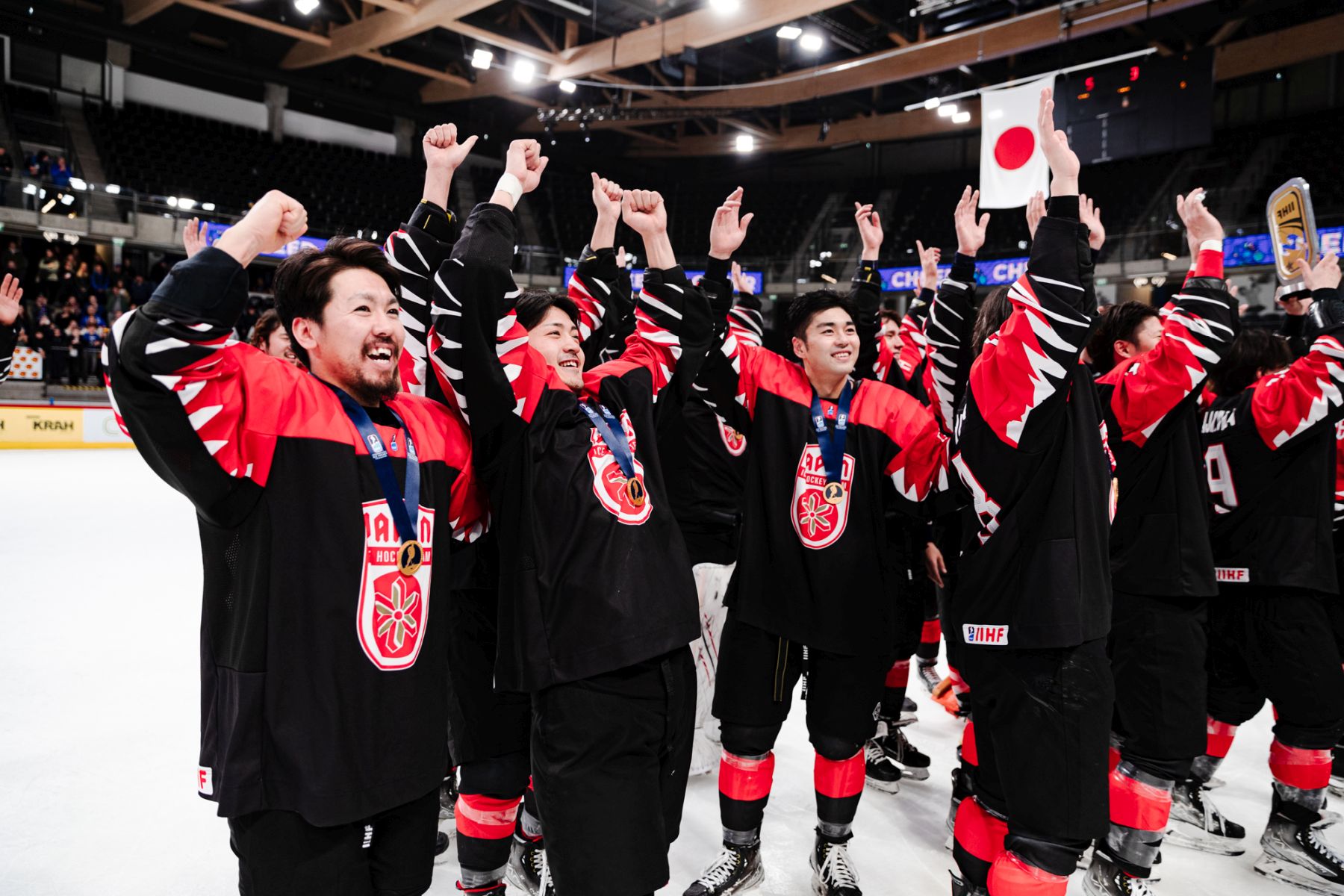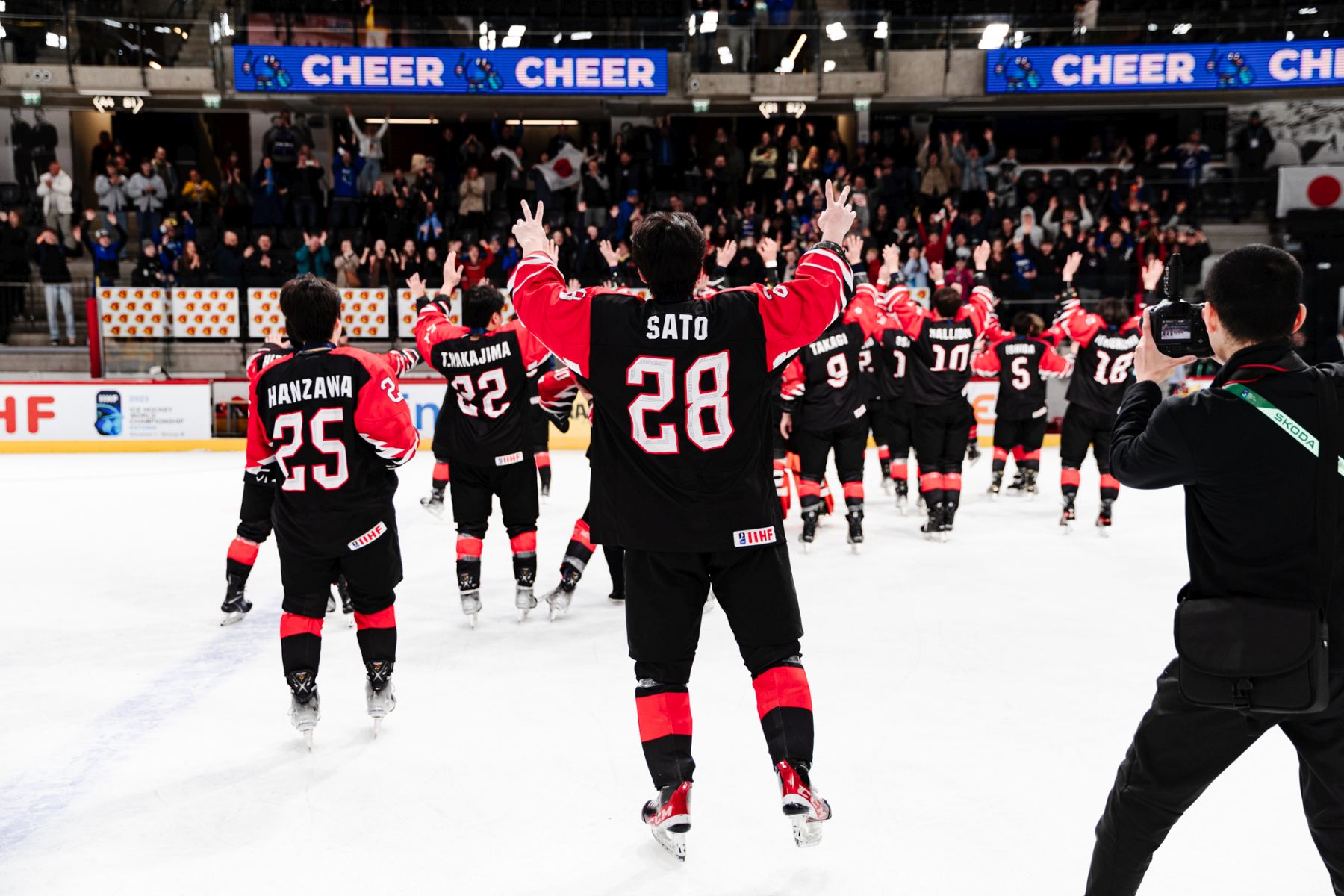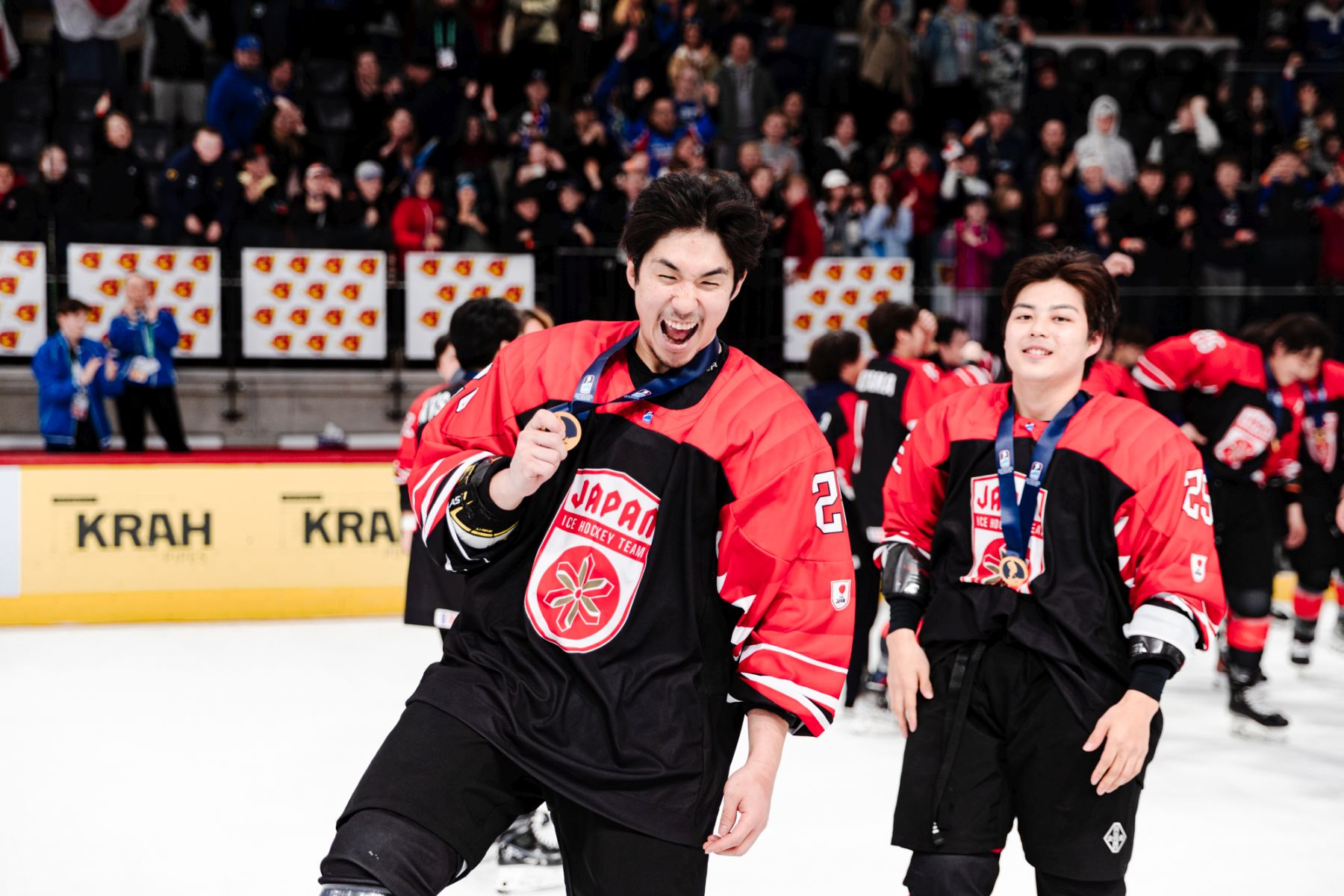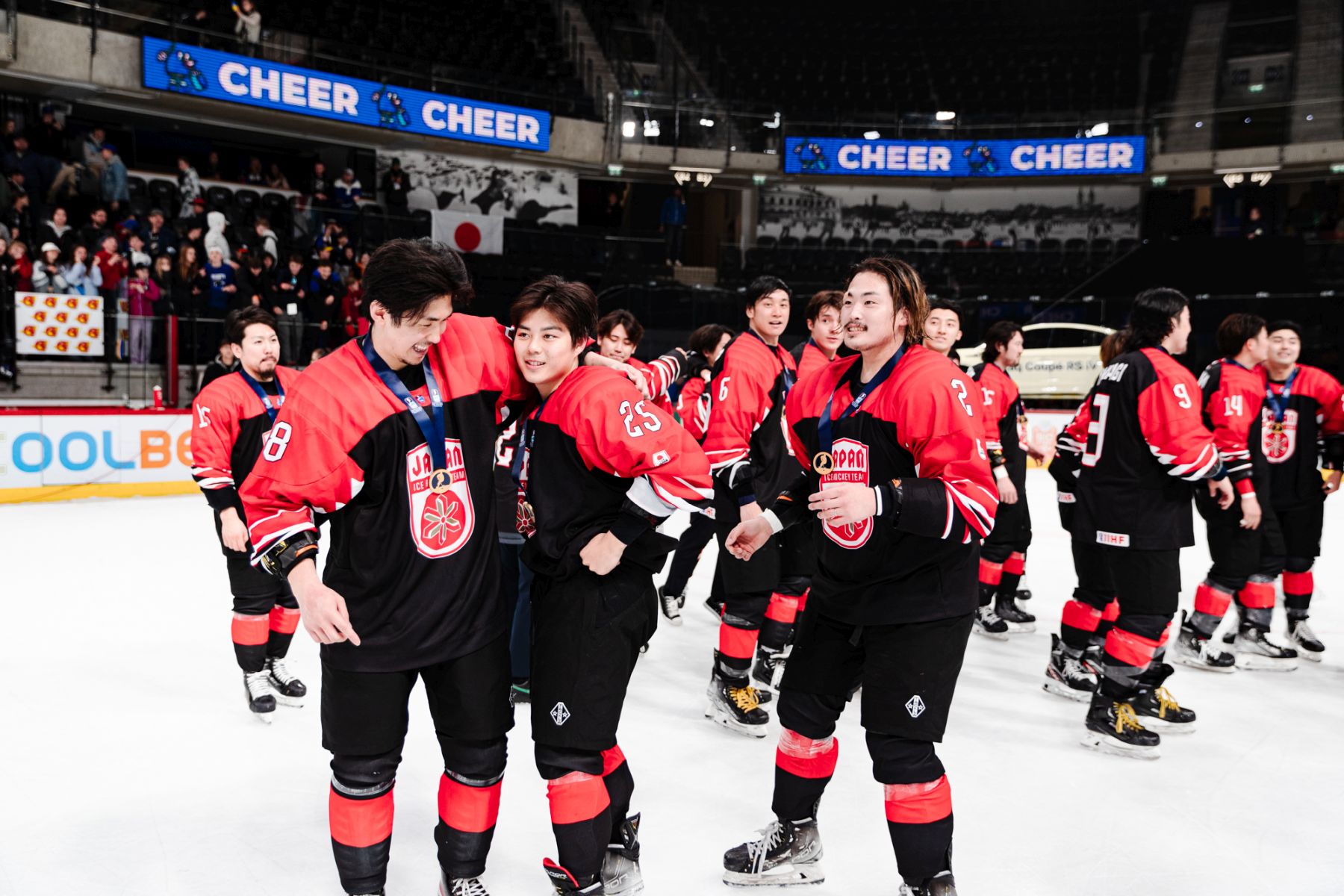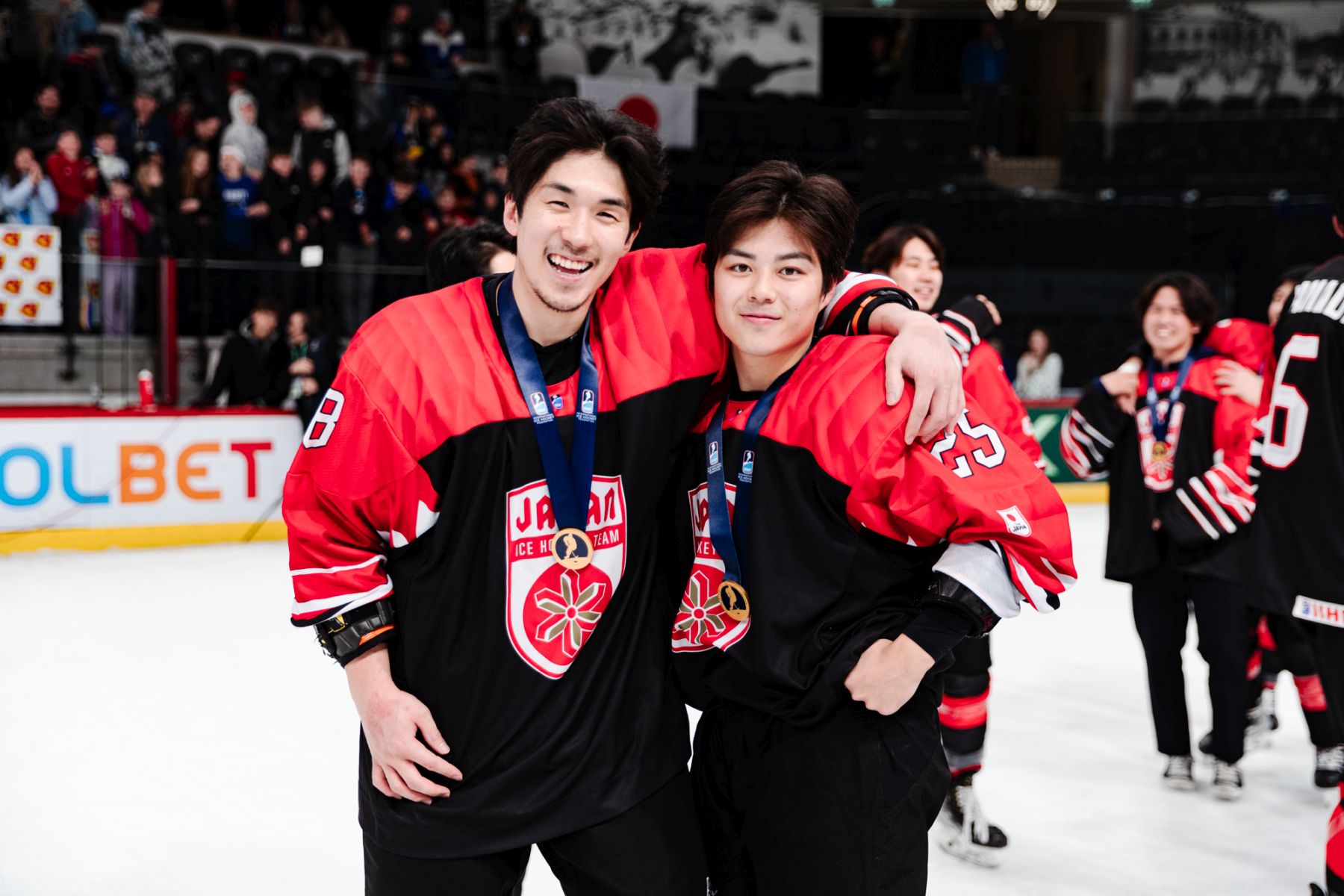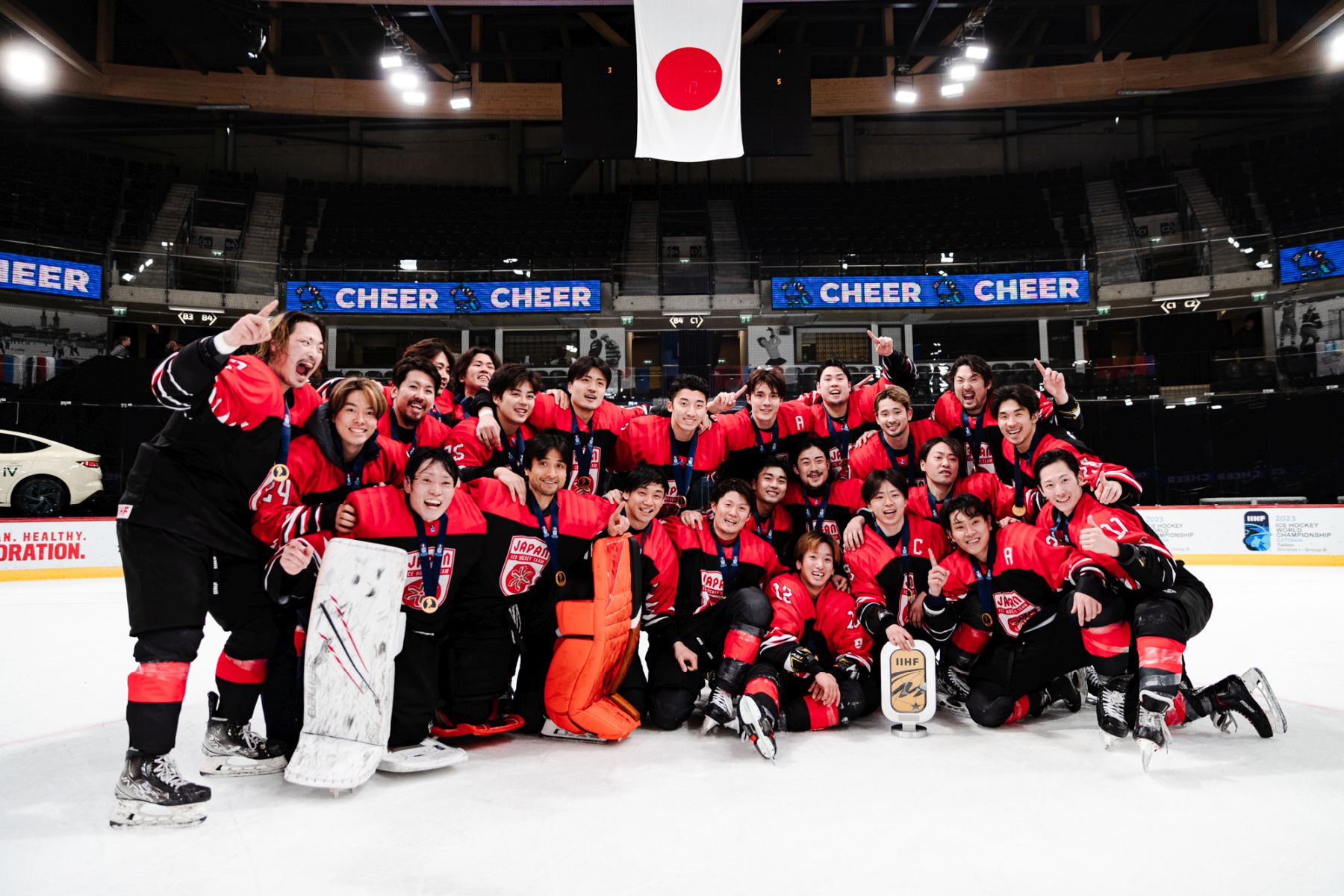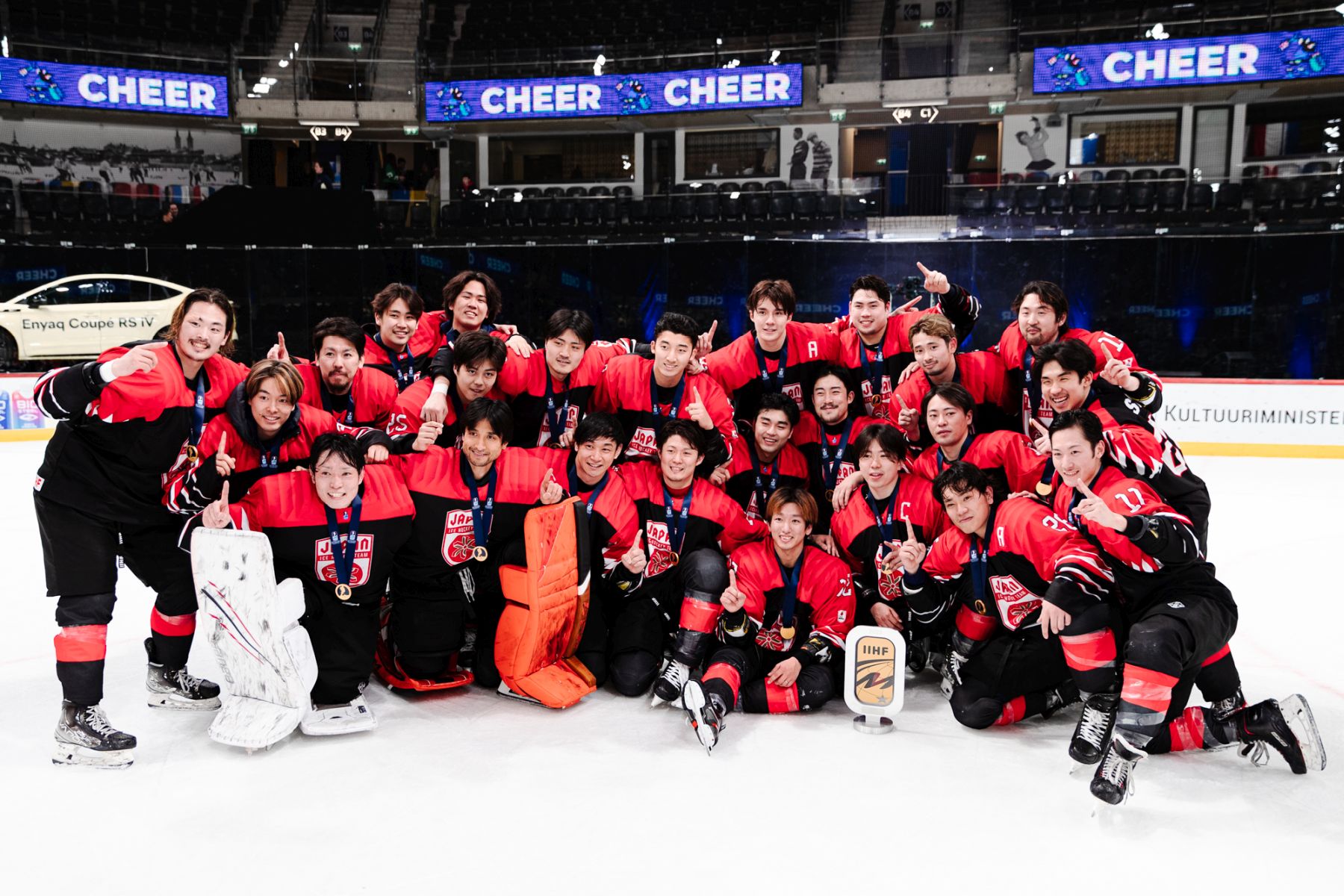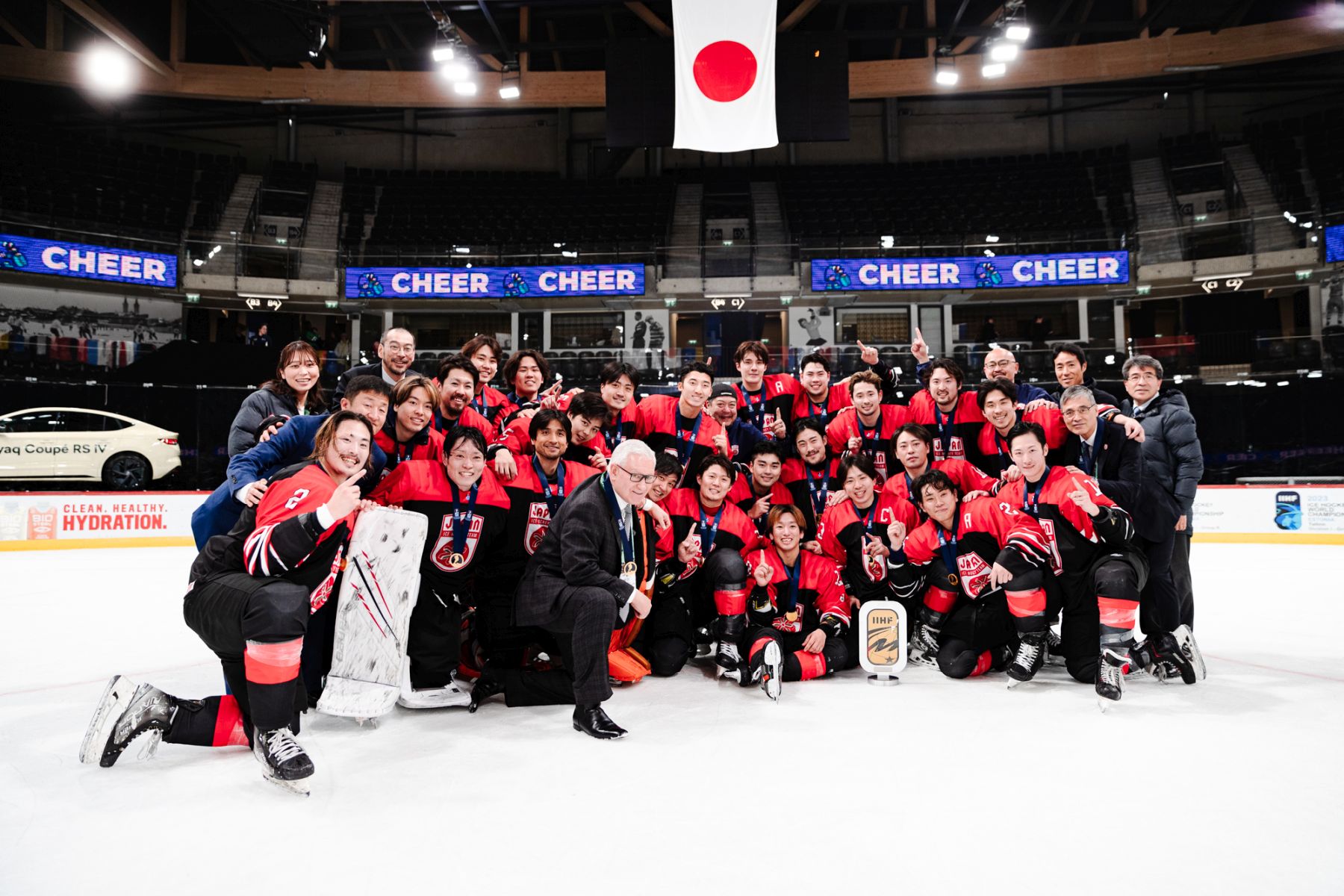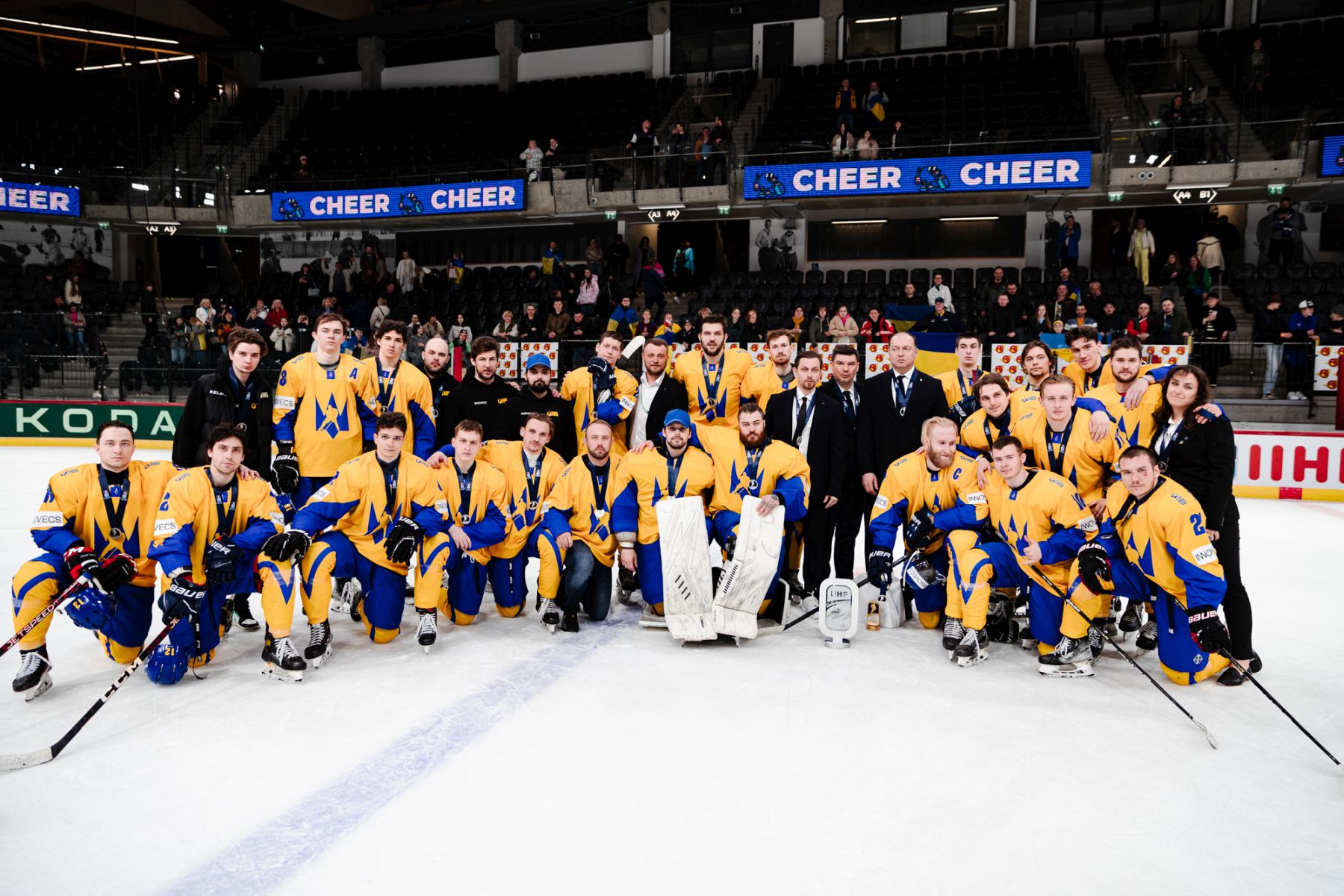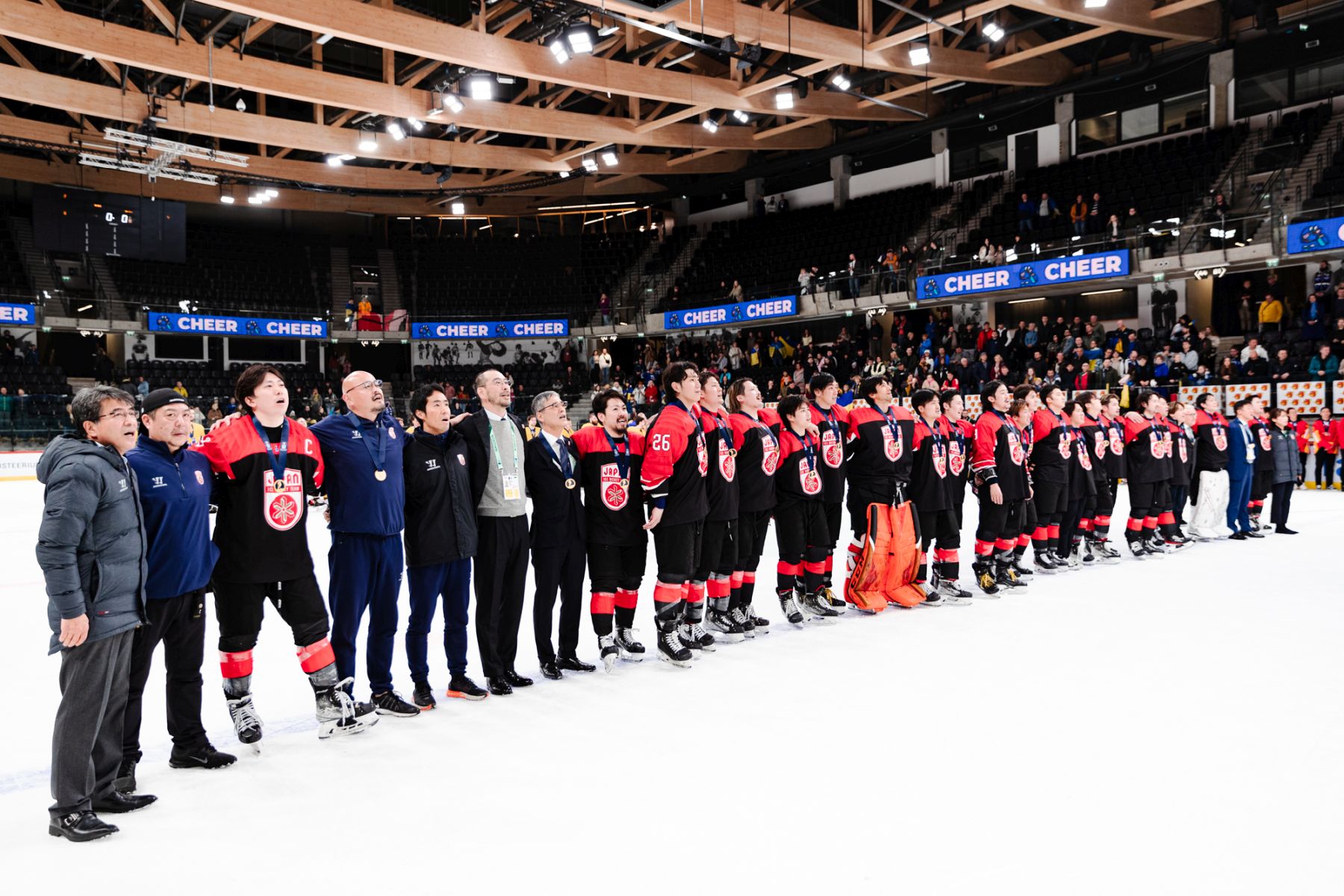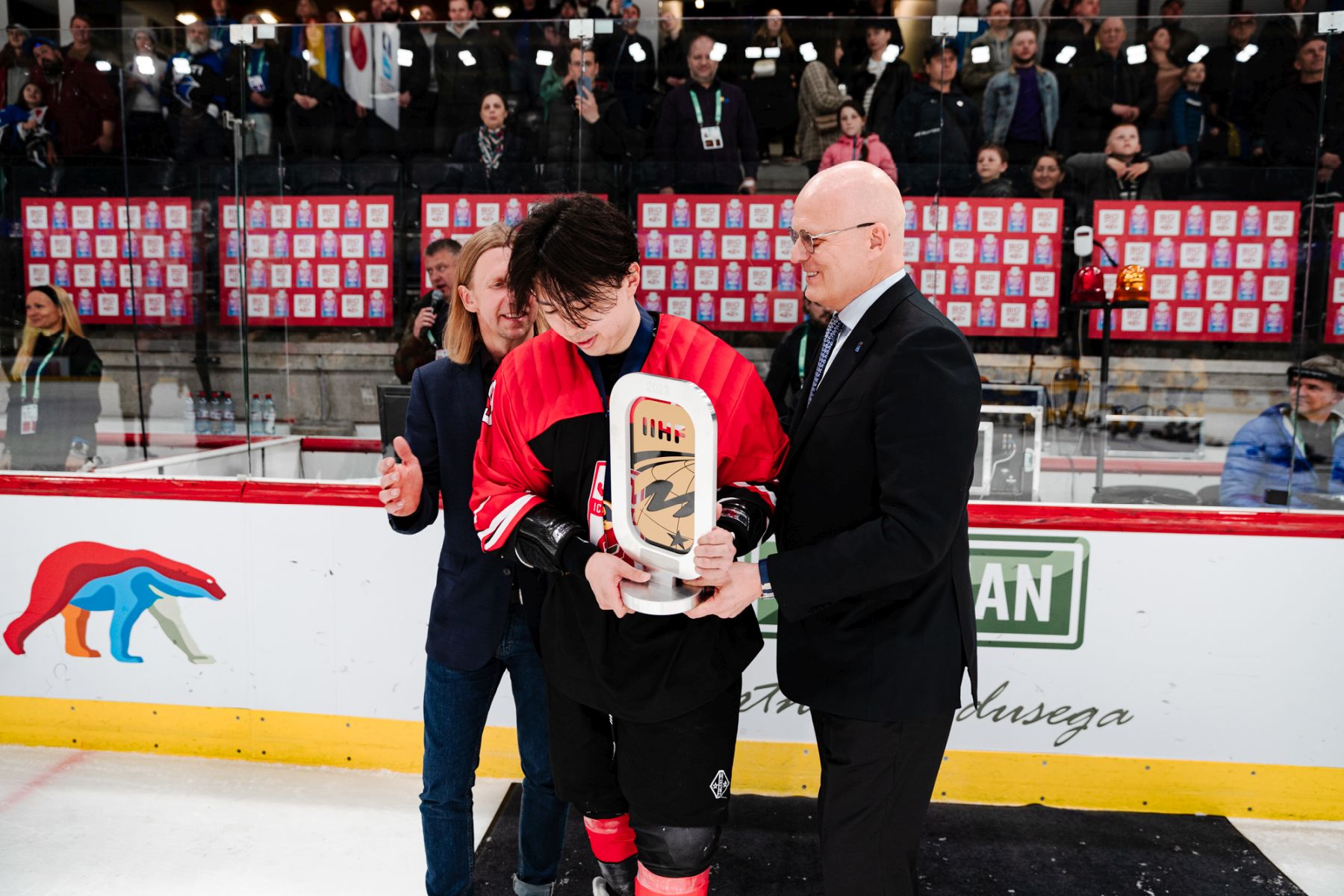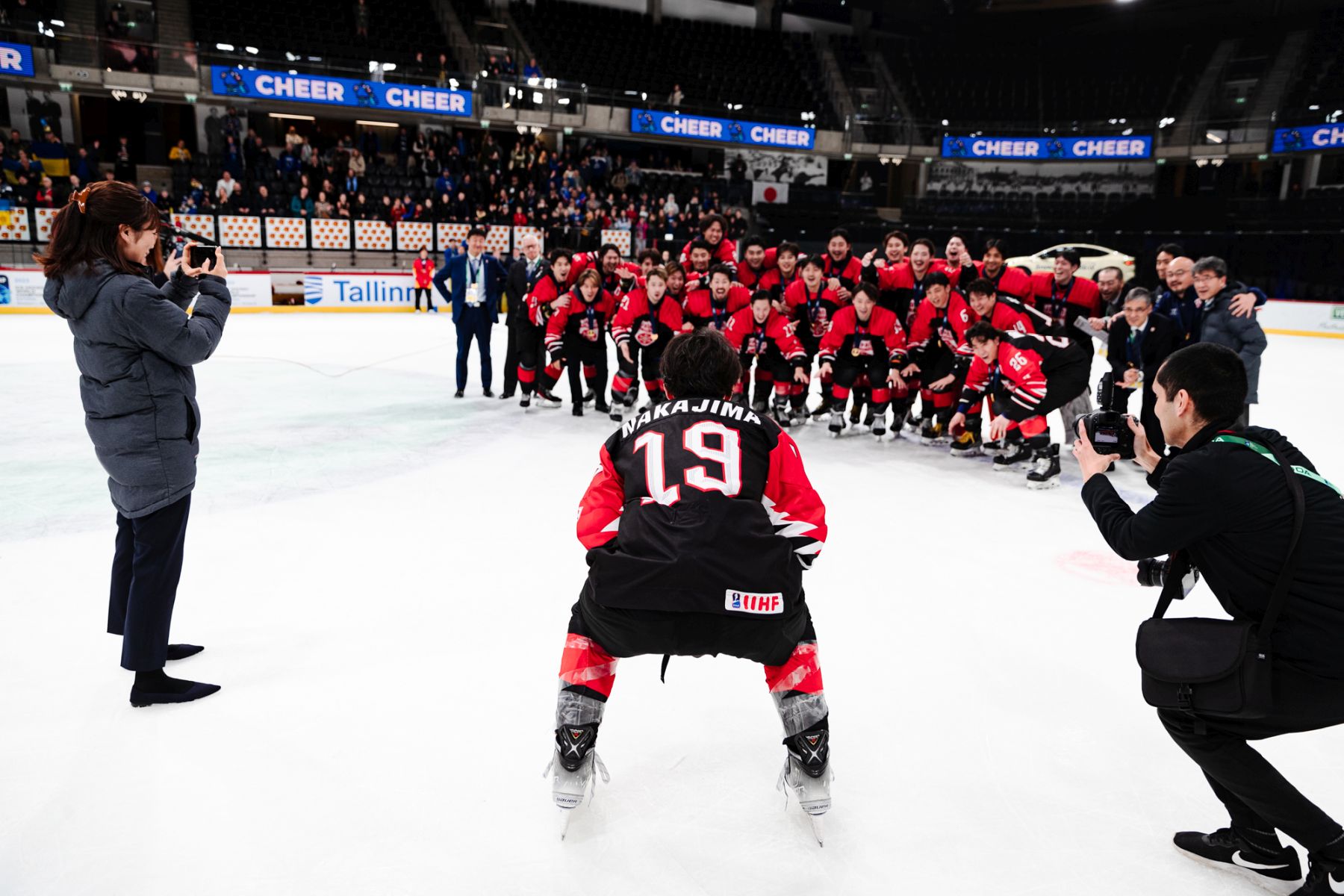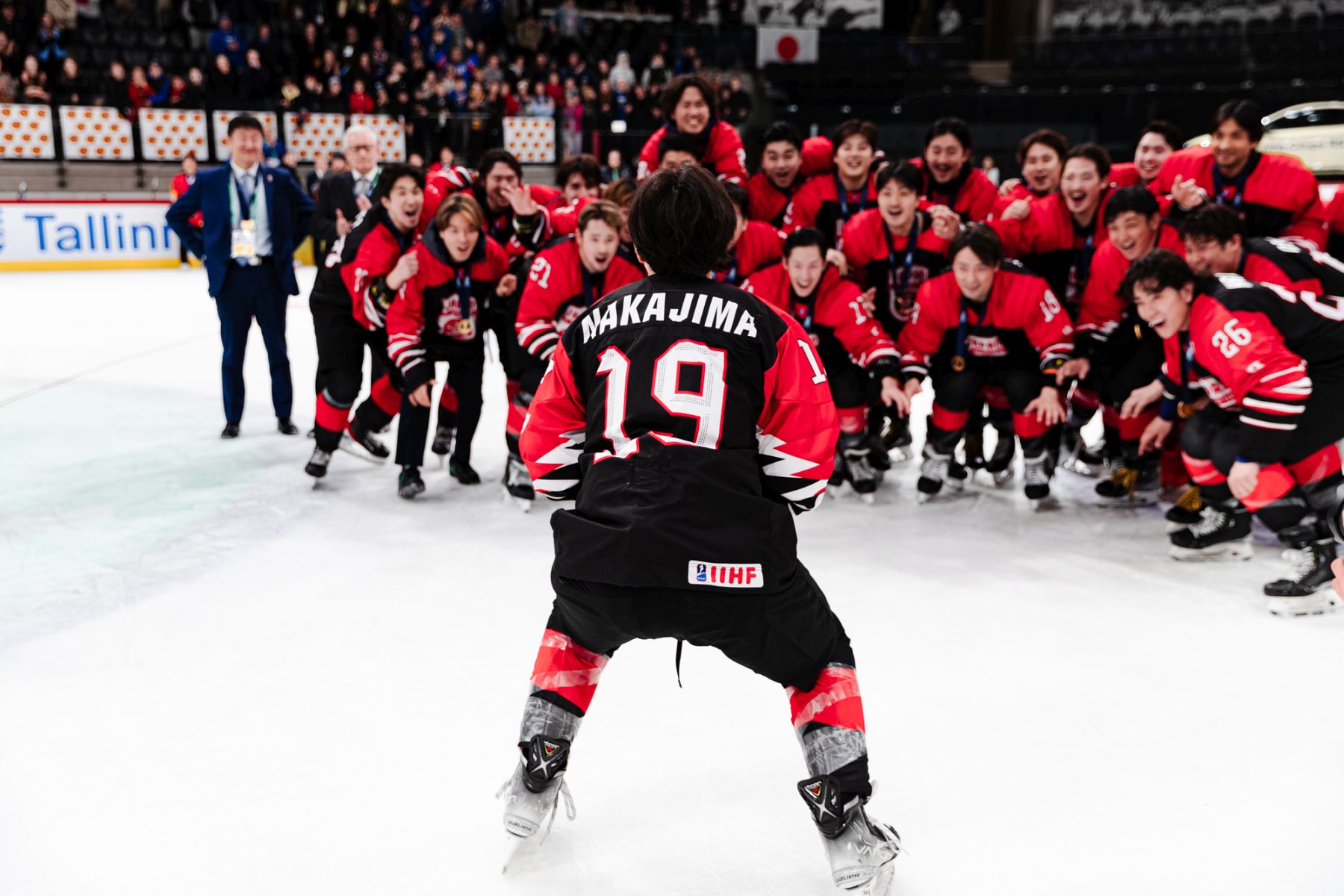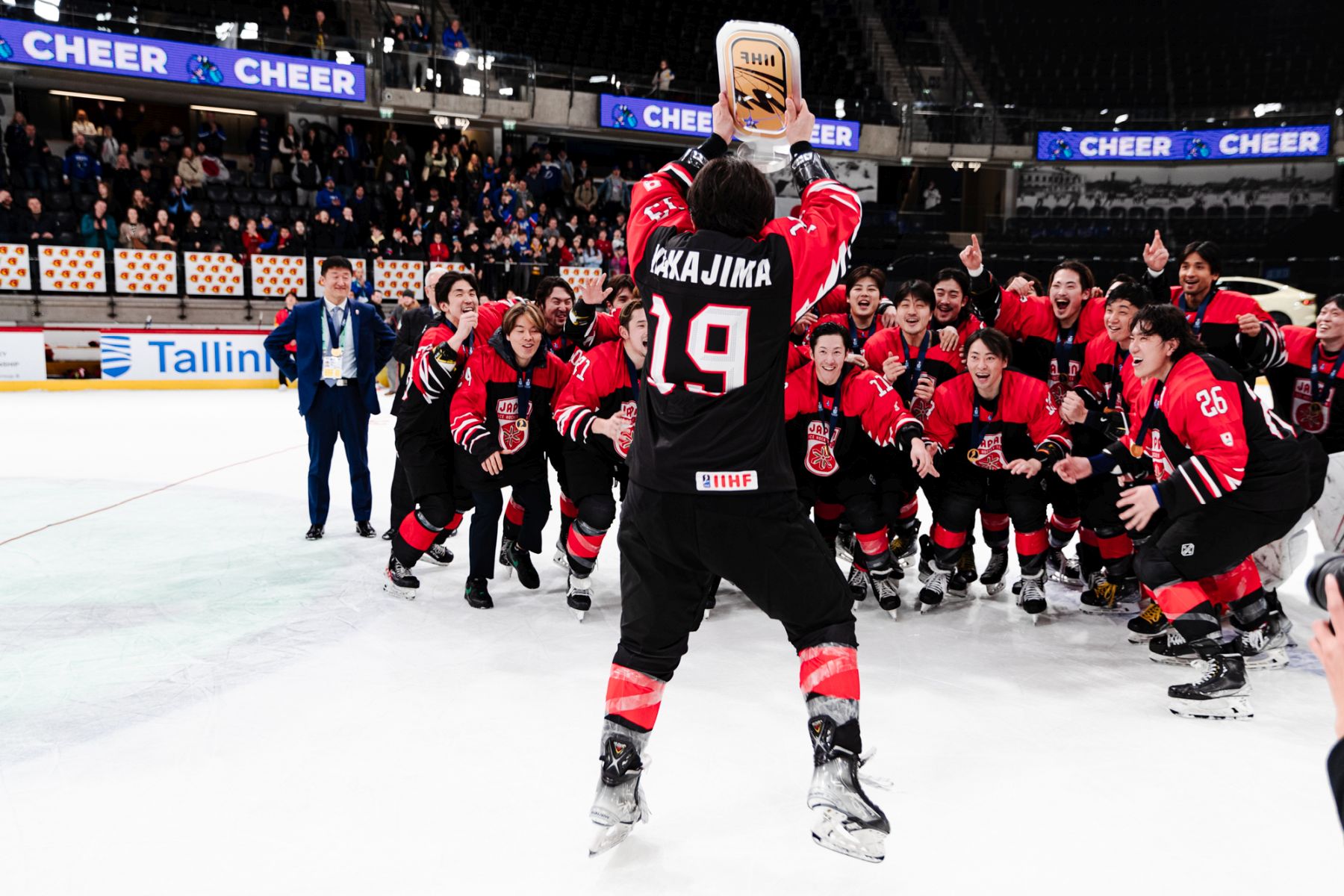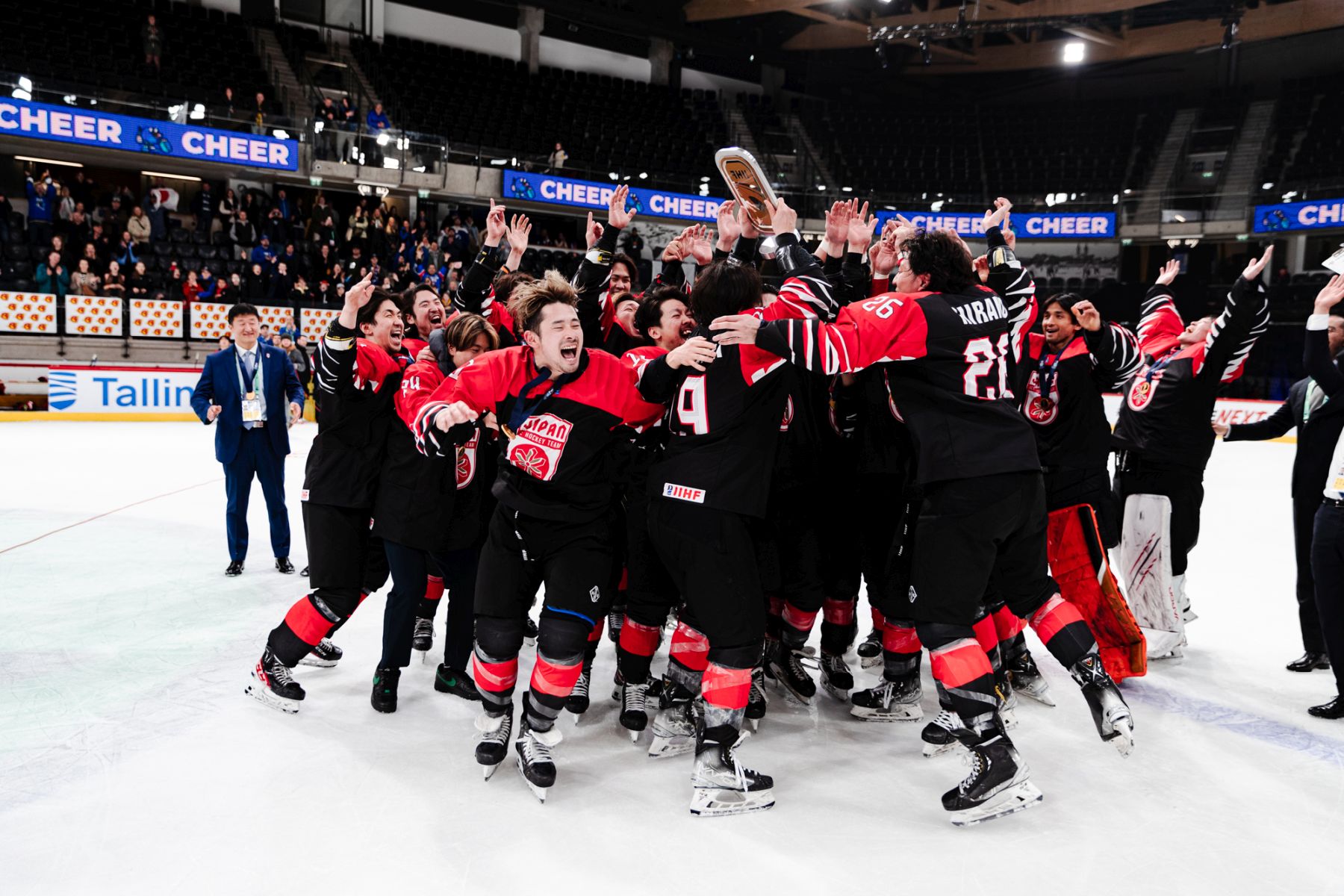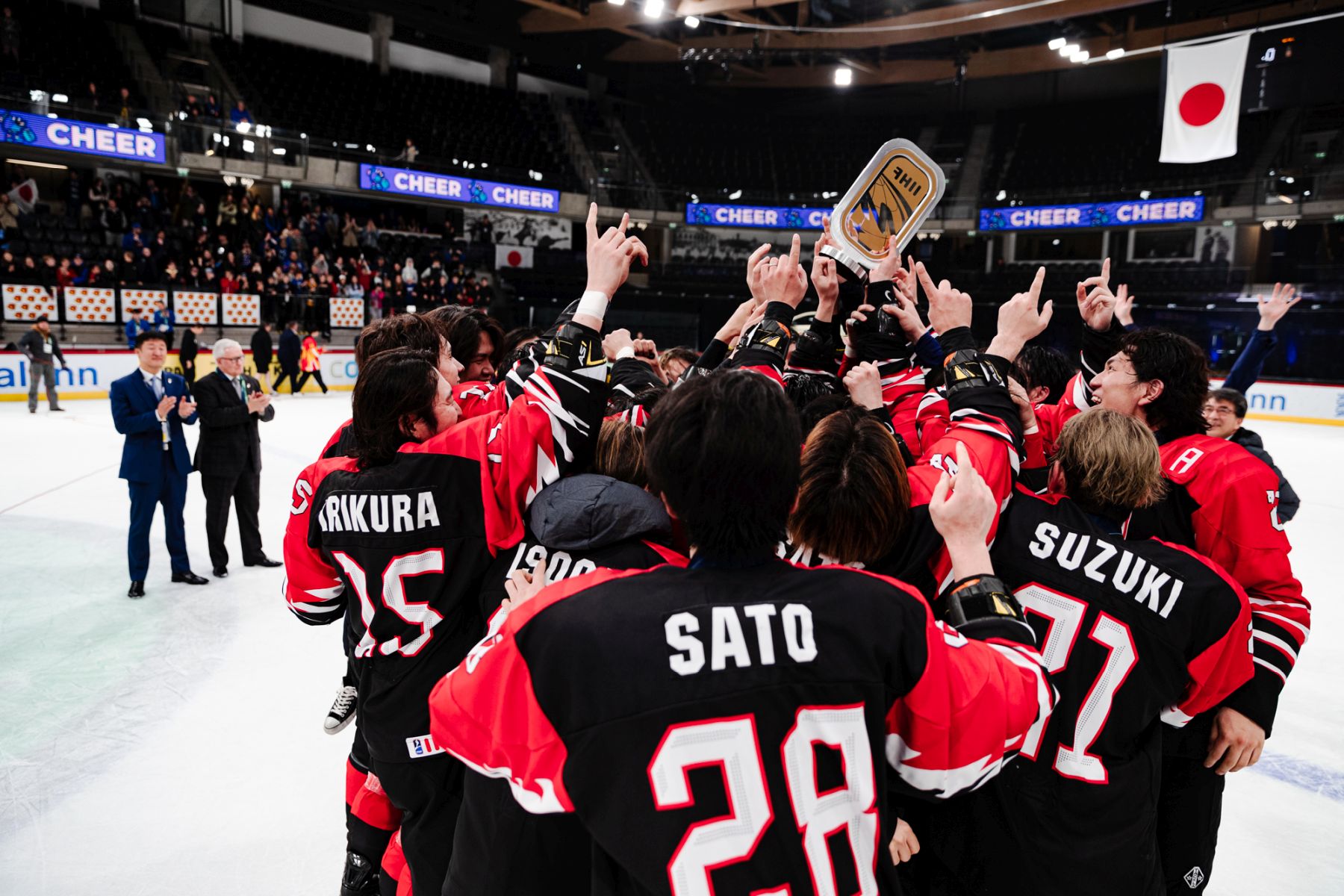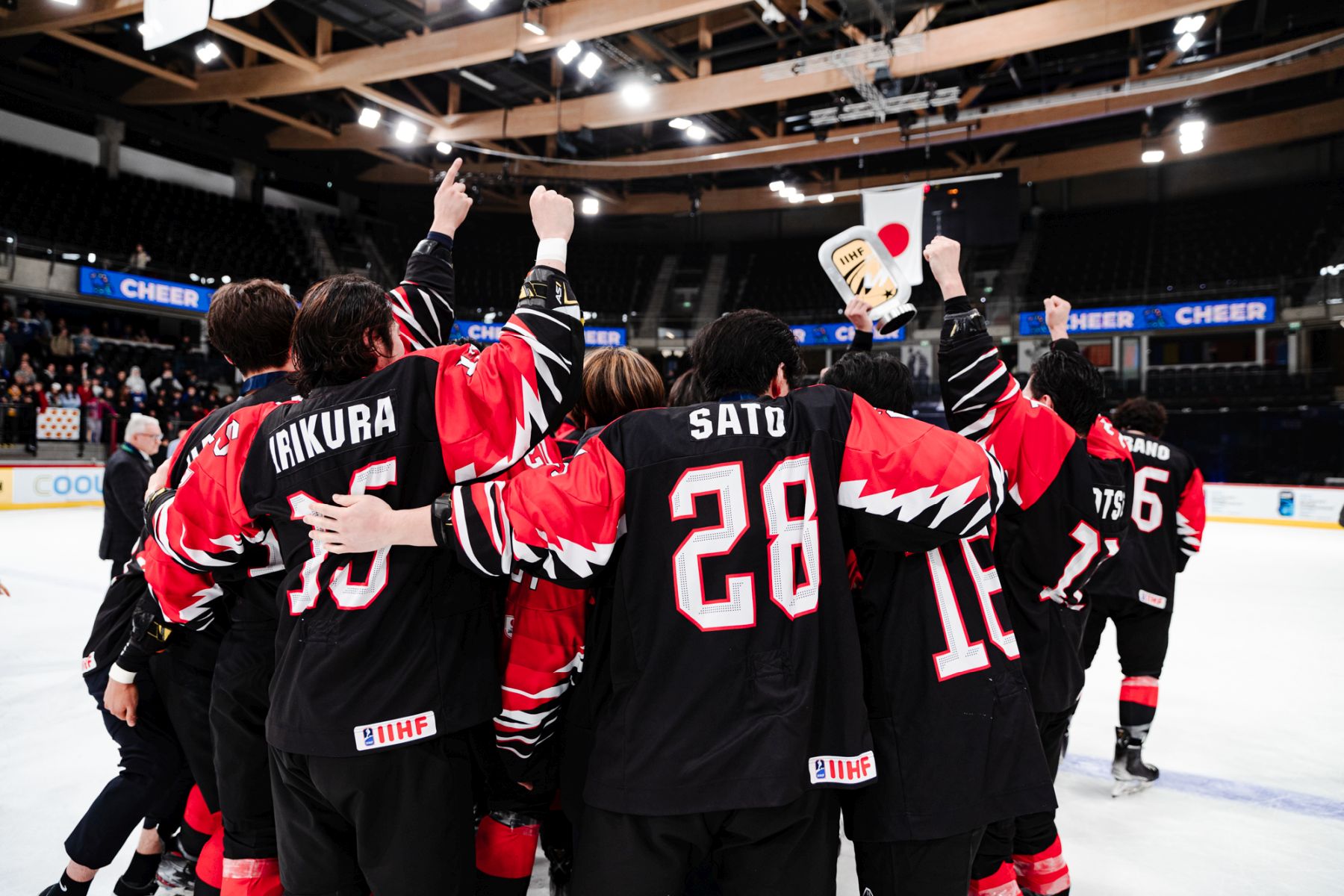This season, Japan won the IIHF World Championship Division I Group B for the first time ever. Under first-year coach Perry Pearn, the team won five straight games in regulation time, outscoring opponents 29-10.
In the last game, Japan led 4-0 in the second period when Ukraine appeared to score a goal, but Pearn believed his goaltender Yuta Narisawa was interfered with and challenged the call.
“I looked up and saw the replay on the board and that made me really confident to call it,” said Pearn. “It looked pretty obvious to me, so it was an easy call and we’d been killing penalties pretty well anyway, so we were confident.”
Pearn won the challenge, which turned out to be worthwhile when Ukraine scored three late goals to make the final score 5-3.
“We opened the door a little bit with the penalty, and they pushed and pushed,” said Pearn. “Ukraine, give them credit, they played hard till the end.”
The late Ukrainian push aside, Japan looked like the best team at the tournament in Tallinn, Estonia this past week. In the four previous tournaments, they had finished second three times and third once.
“I’ve always felt like they were on the verge,” said Pearn. “Last year, we lost 2-0 to Poland in the last game, but I just felt like they needed a little more of a push. So we were hard on them, but we’ve had lots of success this year against really good teams. We played five games against teams that are in the top division and three against teams that are in IA and did reasonably well. I think that gave us confidence as well.”
He added: “I think we compete really hard and they’ve bought into the idea that we have to play hard when we don’t have the puck. I think that was the difference for us.”
A longtime NHL assistant coach who has also coached internationally, Pearn has clearly earned the respect of the Japanese players. That was apparent all week, as they repeatedly gave unprompted credit to Pearn and assistants Yuji Iwamoto and Takeshi Yamanaka for their preparedness and game strategy.
“The coaches teach us to be patient and wait for them to give us opportunities,” said forward Kohei Sato after one win. “We play a good structure and if we pressure them over 60 minutes, we believe they will make more mistakes than we do.”
Not only is Pearn head coach of Japan’s senior men’s national team, but also the national junior team. In almost a mirror of the senior men’s accomplishment, the Japanese U20 team won Division I Group B back in December by beating Ukraine in the final game, and next year will play in Group A for the first time ever.
“The under-20 team, they were focused, they were coachable, they made some really good adjustments when they had to,” said Pearn. “A number of guys from that team are playing in North America, so I think that’s helping the game in Japan too. They come back and show some things that they’ve learned.”
Beyond Pearn’s teams, the Japanese U18 national team finished third in Division I Group A – matching its highest finish ever. In February, that team turned heads in a tournament by beating Germany in a shootout and losing close games to Slovakia and Switzerland. So Japanese hockey seems to be on the rise at all levels.
“One of the things about development in Japan is almost every player learns how to skate really well, so you start off most national teams with really good speed,” said Pearn. “Now, some of the younger players are getting introduced to some really good skills coaching, so the skill level is improving as well.”
As for the senior men’s team, next year it will compete in Division I Group A for the first time since 2016. While it will obviously be more difficult, Pearn doesn’t believe his team will be out of place.
“This year we beat Poland and Romania, and Great Britain beat us but not badly, so I think we can compete at that level,” said Pearn. “It’ll just be a matter of stepping things up a little bit because you’ve got to be a little bit better to stay there.”
